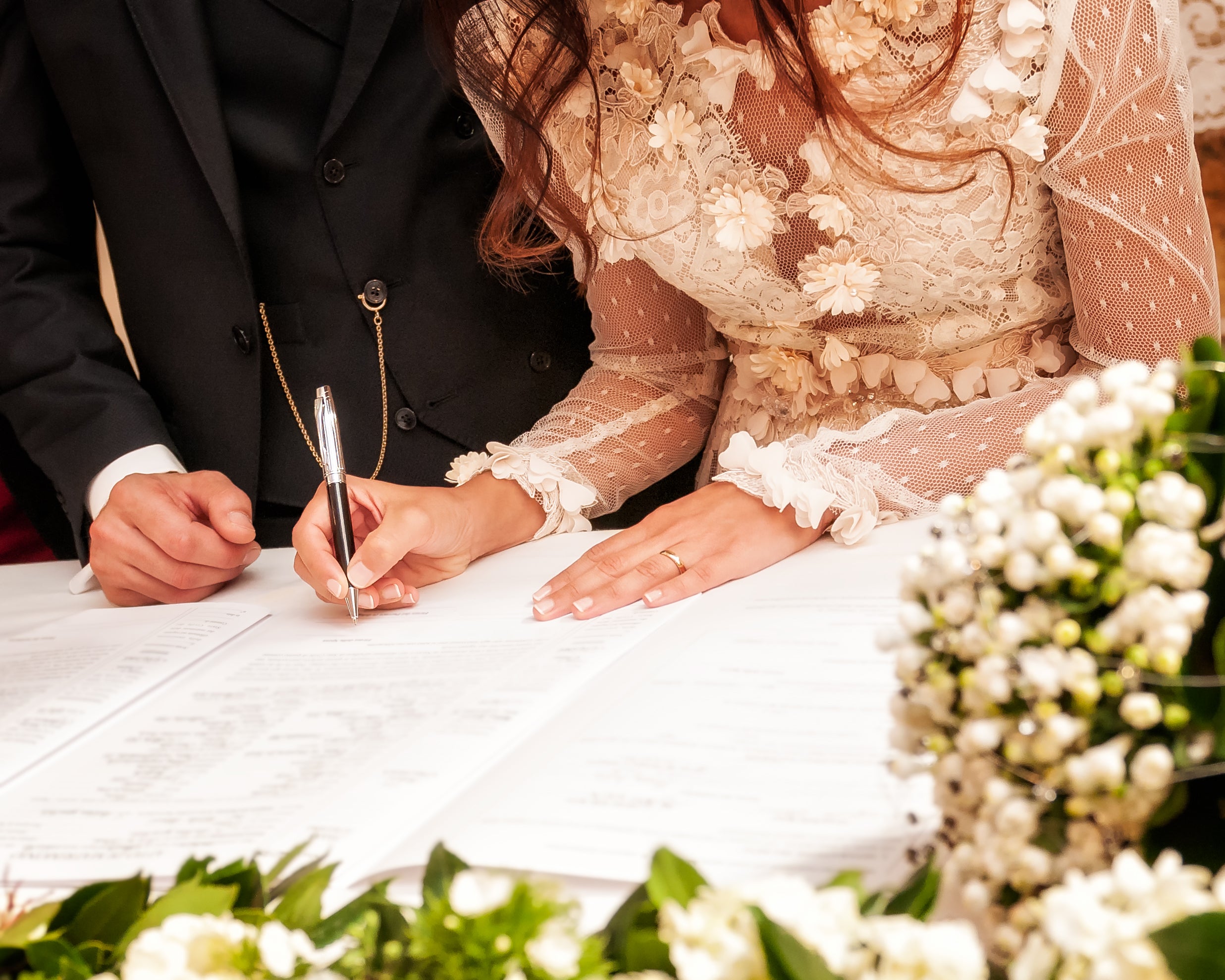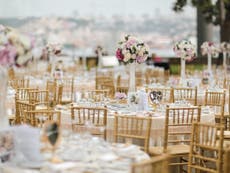The Independent's journalism is supported by our readers. When you purchase through links on our site, we may earn commission.
As a married woman, deciding whether to take my husband’s last name is a game I can’t win
It would be so easy to get swept up in the sweetness of those first years of marriage, and declare ‘what the hell, who cares what my passport says?’


Earlier this week, my husband decided we should get a stationery stamp. We had a few thank-you letters to send, which seemed as good an occasion as any. He got to work, trying to find a cute design combining both of our names.
This wasn’t the kind of endeavour that should send you into a tailspin, much less a crisis of conscience about marriage, relationships and your place in them. And yet, after three tentative designs it became clear that we wouldn’t find a stamp that would make me completely happy.
The problem, you see, is that I have no idea if I want to take my husband’s surname – which wouldn’t be much of a problem if we hadn’t been married for three years already.
So far, I’ve been able to avoid the issue while I’ve been renewing my US immigration papers (yes, for three years on and off), and a confusing name change would risk toppling the entire process. One day (hopefully), the situation will stabilise and I will be out of excuses.
When that day comes, I will make a decision, and there will be no perfect ending. The matter of my surname is a game I cannot win – one where I end up being either a bad feminist or a bad wife.
Broadly speaking, I have, of course, two choices: keep my surname or take his. And to be clear, I don’t judge the people who have chosen to do the former, nor do I judge those who have done the latter. The only person I’ve been judging is myself.
See, I know that I don’t want my current name (the one displayed on this website) to disappear completely. To me, that would feel brutal. I’ve been Clémence Michallon for 27 years. It hasn’t always been a comfortable or even practical process (I am French but I live in the US, where I have the kind of name you have to repeat three times and spell out eight times before people wrap their heads around it) but I’ve become used to it.
It doesn’t help that I’m a journalist, which means that my name is also my byline. All of my professional highs and lows are closely associated with it. My summer internships, my first work contract, the biggest story of my career – all of these have my current name attached to them. Names tell stories, and it might sound conceited, but my story matters to me.
So, why not just keep it then? It’s a perfectly acceptable choice nowadays, and very few people, if any, would give me grief over it.
In any case, I would be in good company: a 2015 study by The New York Times showed a clear rise in the percentage of women who chose to keep their surnames after marriage. About 20 per cent of them did so in recent years, as opposed to 14 per cent in the 1980s and 18 per cent in the 1990s.
The truth is that I like the idea of a common surname. Every time I debate the issue in my head, I am reminded of a conversation I once had with my hairstylist who simply wanted to share a name with his husband, and didn’t care which one they chose. All he wanted was to signal to the world that the two of them were now a family.
Obviously, this argument struck a chord – I, too, want to show the world that my husband and I are a family. Changing my surname might be an administrative chore, but it can also be seen as an act of love. After all, so many wives do it every day. They wake up as Ms X, and then, one walk down the aisle and a few drinks later, they go to bed as Mrs Y. They don’t seem any less happy for it.
And yet, it’s precisely because I love my husband that I must take the time I need to figure out which option works best for me. It would be so easy to get swept up in the enjoyment of it all, in the sweetness of those first three years of marriage, and to declare “oh, what the hell, who cares what my passport says?”
Well, I care. I didn’t choose to care, but I do. And it does matter, because a marriage – or any relationship, for that matter – cannot work if you feel like you’re losing part of yourself in it.
I know there’s a seemingly obvious solution to my problem, and when I’m officially done with my immigration homework I might well pick some kind of combination of my surname and his, à la Ruth Bader Ginsburg. Of course, it also opens the door to a host of other questions: which surname comes first? Which one comes last? Should I hyphenate? What happens if we have children? Will everyone just keep hyphenating until one person’s name is as long as War and Peace?
What I do know is that I appreciate it when people don’t assume I have changed my surname. I also like it when people abstain from judging women’s choices, one way or another. And whatever you, newly married person, choose to do, please know that you’ll do the right thing as long as you listen to yourself. Names encapsulate everything that we are. Parting with one is not inconsequential.





Join our commenting forum
Join thought-provoking conversations, follow other Independent readers and see their replies